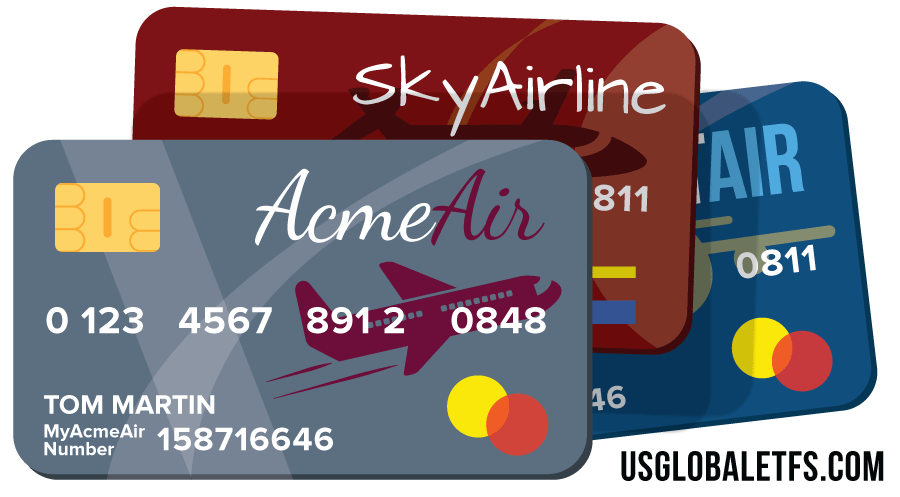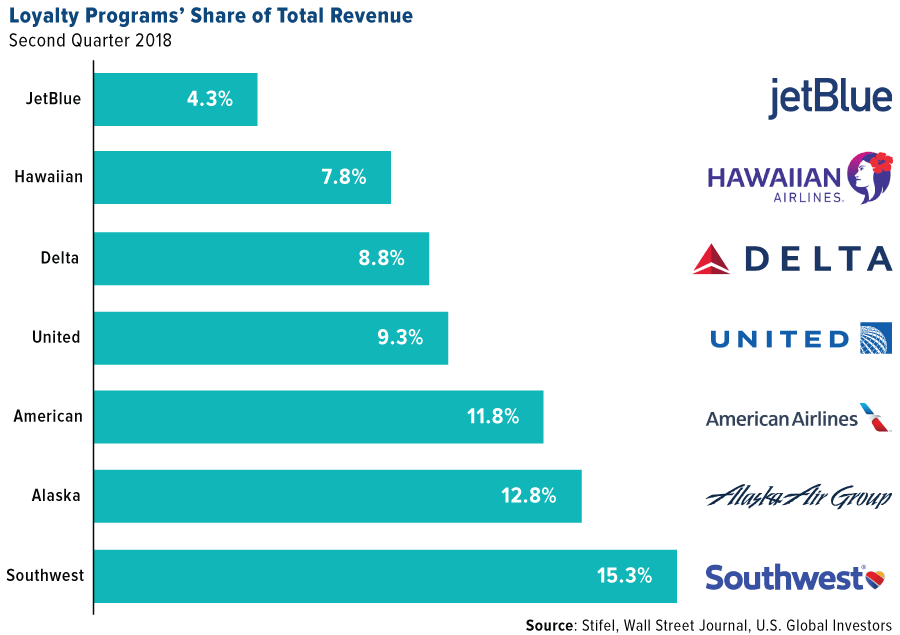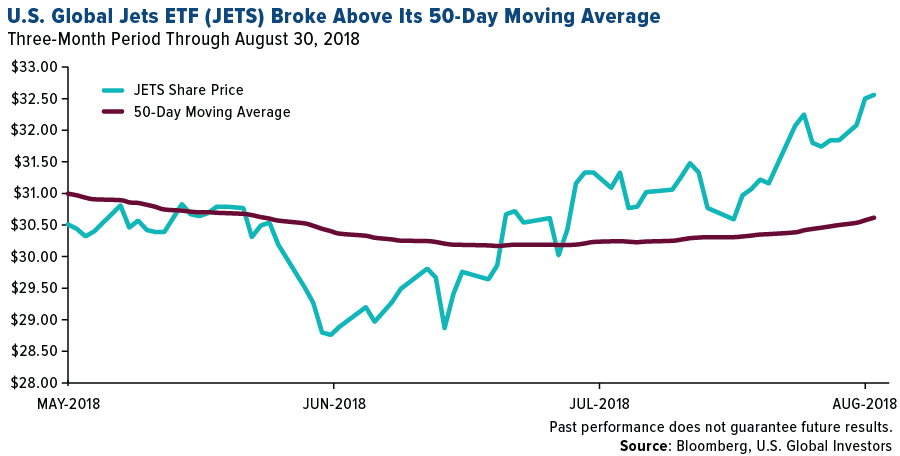
It’s no secret that commercial airlines are charging more for things that customers used to get for free—checked bags, extra legroom, reservation changes and more. Low-cost carrier JetBlue, for instance, just announced that it was increasing the cost of checking bags for some passengers, from $25 to $30 for the first bag, $35 to $40 for the second.
These a la carte fees might irk some paying customers, but they could end up being a key selling point for investors seeking companies that have grown their revenues year to year. They also help airlines offset the rising cost of fuel and labor.
According to airline finance consultant IdeaWorks, ancillary revenues have expanded every year since it began tracking them in 2007. Last year, the top 10 global airlines, as ranked by total ancillary revenue, produced a collective $29.7 billion, up an incredible 14-fold from 10 years earlier.
Among the U.S. companies that generated the most in extra fees as a percent of total 2017 revenue were low-cost carriers Spirit Airlines (46.6 percent), Frontier Airlines (42.4 percent) and Allegiant Air (39.8 percent).
A Lucrative Revenue Stream
Besides checked bags and legroom, airlines are increasingly cashing in on loyalty credit cards. Las Vegas-headquartered Allegiant, cited above, joined nearly every other carrier in the U.S. by introducing its World Mastercard last year.
Revenues from these loyalty programs were up for every major U.S. carrier in the second quarter of 2018 compared to the same period last year, according to the Wall Street Journal.
What’s more, these increases outpaced sales growth for many airlines. Revenue from American Airlines’ rewards program grew 7 percent to $1.4 billion in the June quarter, while total revenue grew 4 percent.

Southwest Airlines saw the greatest benefit from its Rapid Rewards programs, which accounted for 15.3 percent of overall sales in the June quarter. Alaska Airlines, American, United Airlines, Delta Air Lines, Hawaiian Airlines and JetBlue also threw up huge numbers.
Delta’s deal with American Express has been particularly lucrative, generating an estimated $3 billion in 2017. New card acquisitions set a record in the first quarter of 2018, following a record 1 million new acquisitions last year, according to the Atlanta-based carrier.
The cards are expected to continue driving sales for airlines, even when customers aren’t flying. “Consumers will keep using their cards to buy food and other staples even if the economy sours and they pull back on travel,” the Wall Street Journal writes.
JETS Shrugged Off Higher Fuel Costs
Increased sales have been helping to drive higher share prices of the U.S. Global Jets ETF (JETS). United, Southwest, Delta and American represent nearly 50 percent of the fund, which recently broke above its 50-day moving average, despite higher fuel costs. On August 29, JETS closed at a five-month high of $32.56.

For more on JETS, ancillary revenue and higher fuel costs, watch U.S. Global CEO Frank Holmes’ interview on the floor of the New York Stock Exchange by clicking here!
Past performance does not guarantee future results.
Please click here for standardized performance.
The performance data quoted represents past performance. Past performance does not guarantee future results. The investment return and principal value of an investment will fluctuate so that an investor’s shares, when sold or redeemed, may be worth more or less than their original cost and current performance may be lower or higher than the performance quoted. For performance data current to the most recent month-end please visit www.usglobaletfs.com.
Ancillary fees/revenue, in the airline industry, is revenue from non-ticket sources, such a baggage fees and on-board food and services, and has become an important financial component for low-cost carriers. All opinions expressed and data provided are subject to change without notice. Some of these opinions may not be appropriate to every investor.
